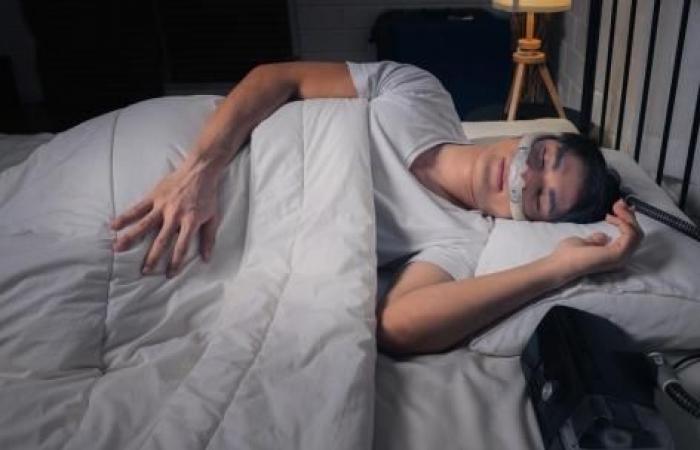THE ESSENTIAL
- Researchers have highlighted an association between sleep apnea and wet AMD.
- This could be linked to the low nighttime blood oxygenation levels recorded in sleep apnea patients.
- Researchers suggest that appropriate management of sleep apnea could reduce the risk of AMD.
AMD is the leading cause of visual impairment in people over 50. If overall 8% of the French population suffers from it, the rate rises to 30% among those over 75. Researchers from the Center for Eye Research Australia have linked low blood oxygen levels at night – a common sign of obstructive sleep apnea – to the wet form of the eye disease.
Their study was recently published in the journal Journal of Clinical and Experimental Ophthalmology.
Wet AMD: low oxygen levels at night increase risk
To better identify the risk factors for wet AMD, the team brought together 225 people over the age of 50 suffering from different stages of the pathology. Their blood oxygen levels during sleep were recorded three consecutive nights at home using a digital oximeter. The presence or absence of obstructive sleep apnea-hypopnea syndrome (OSAS) in participants and its severity were calculated based on oxygen levels measured while they were sleeping.
Analysis of the collected data found that moderate to severe sleep apnea – which causes lower blood oxygen levels during the night – was associated with an increased risk of wet AMD compared to people without sleep apnea. not this pathology.
AMD: managing sleep apnea syndrome
Lack of oxygen at night can lead to many health problems, particularly to the eyes. Indeed, the scientists point out in their article that the retina is particularly sensitive to small drops in oxygen levels. “The retina is very active at night: it has a greater energy requirement when it recovers from the day”explains Dr. Carla Abbott, co-director of the study, in a press release.
However, sleep apnea leads to a drop in oxygenation in the blood. Treating this severe sleep disorder could therefore reduce the risk of wet AMD, according to the researchers.
“If this association is validated, it could be useful to ask people at high risk of suffering from early AMD if they have symptoms suggestive of sleep apnea, because treatment of this disease could reduce the risk of developing degeneration wet macular”concludes the specialist.
Larger studies will be carried out to confirm and better understand the association discovered. They will also seek to determine whether treating sleep apnea reduces the risk of wet AMD, as the team from the Center for Eye Research Australia suggests.
Health






